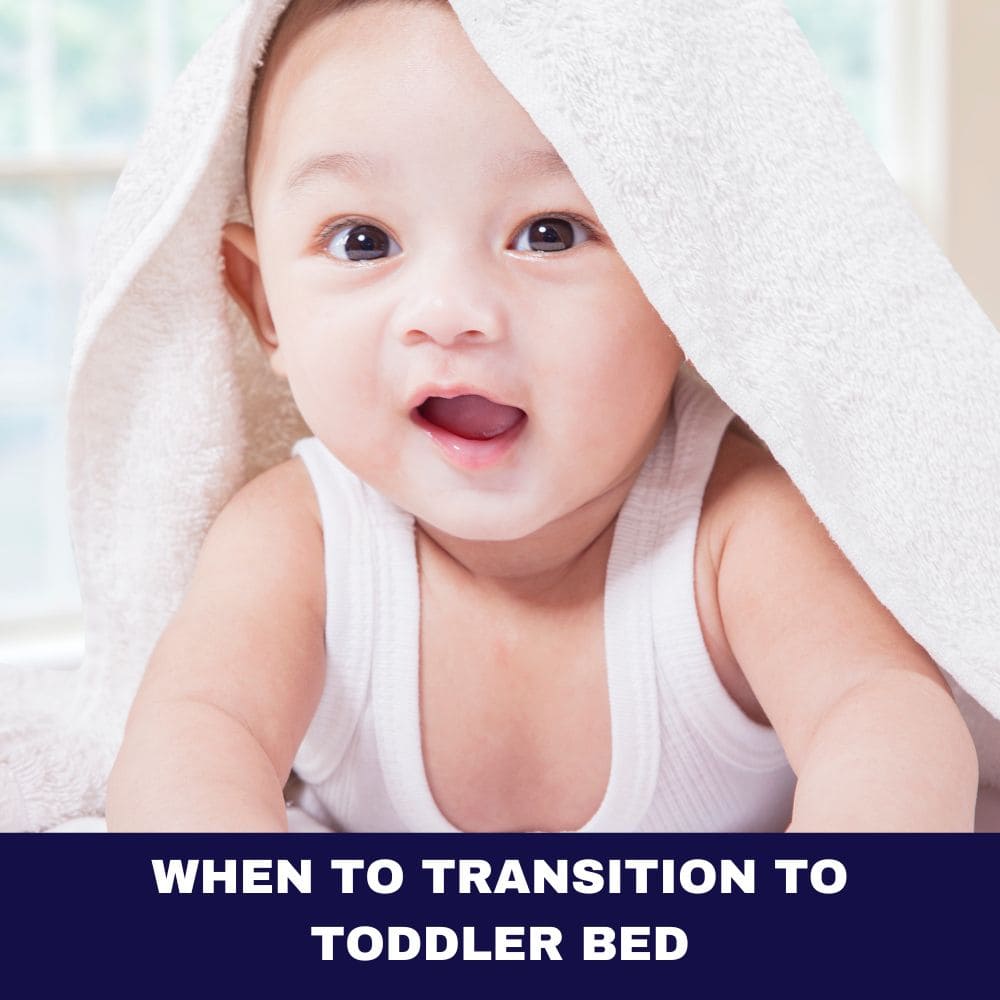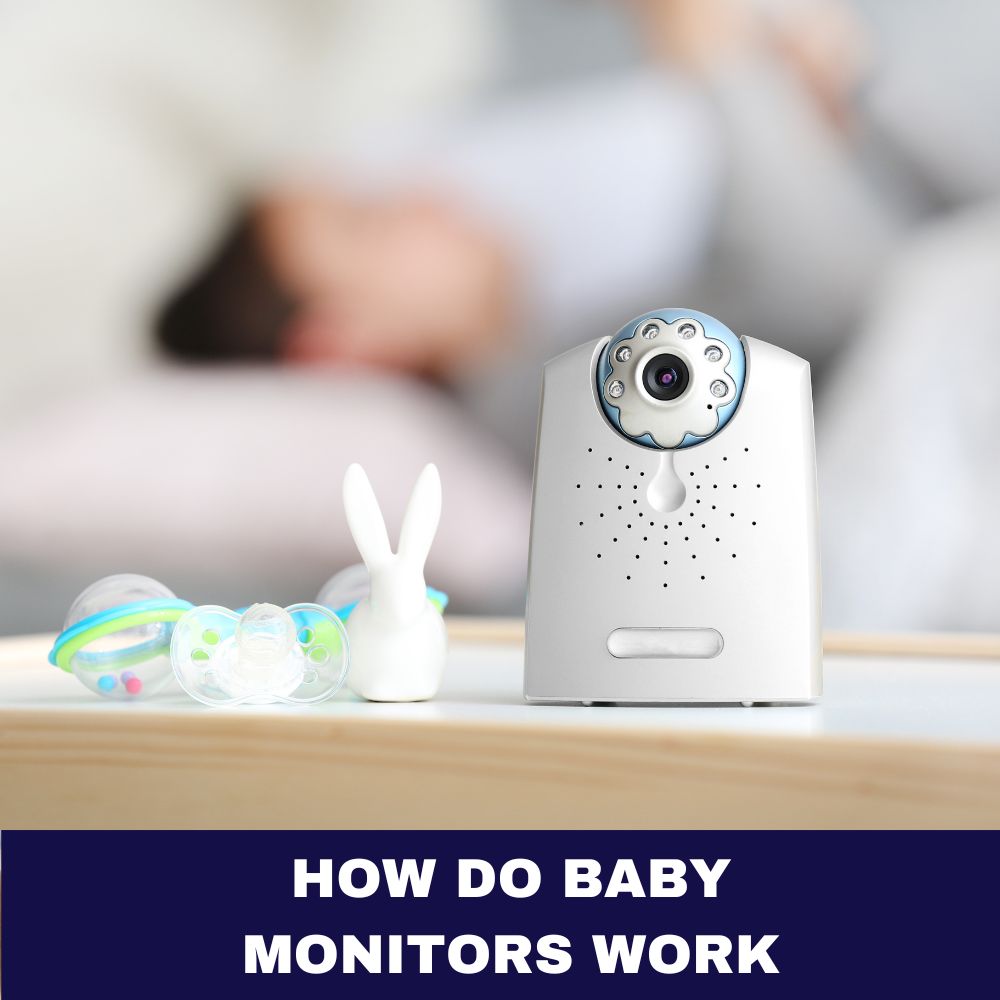As a parent, few sights are as precious as watching your little one peacefully sleeping. However, you might have noticed your baby sleeps with their mouth open while still breathing through their nose. This phenomenon, though common, can raise concerns about your baby’s health and sleeping habits. In this comprehensive guide, we’ll explore the reasons behind this behavior and provide you with 12 ultimate tips for promoting healthy sleeping habits for your little one.

Is It Normal for Babies to Sleep With Their Mouths Open?
First things first, let’s address the question on every parent’s mind: is it normal for babies to sleep with their mouths open? The short answer is yes, it’s quite common. Many infants naturally breathe through their noses when they’re newborns, but as they grow and develop, they may start to breathe through their mouths as a response to upper airway blockages or other factors.
It’s important to note that while mouth breathing is a common occurrence, it’s not as efficient as nose breathing. Nose breathing helps filter, humidify, and warm the air before it reaches the lungs, which is essential for your baby’s overall health and development.
Reasons Why Babies Sleep With Their Mouths Open
There are several reasons why your baby might be sleeping with their mouth open. Some of the most common causes include:
- Nasal congestion: Colds, allergies, or other respiratory issues can lead to a stuffy nose, making it difficult for your baby to breathe through their nose.
- Teething: As your baby’s teeth start to come in, they may experience discomfort and tenderness in their gums, leading them to sleep with their mouth open.
- Developing facial muscles: As your baby grows, their facial muscles are still developing and learning to work together. This can sometimes result in mouth breathing.
- Anatomical factors: Some babies may have anatomical issues, such as tongue-tie or enlarged tonsils, that can contribute to mouth breathing.
- Mucus blockage: Excess mucus in the nose can block the nasal passages, forcing your baby to breathe through their mouth.
- Sleep apnea: In rare cases, mouth breathing may be a sign of sleep apnea, a condition where breathing is interrupted during sleep.
- Deviated septum: A deviated septum, which is a misalignment of the wall between the nostrils, can make it difficult for your baby to breathe through their nose.
- Habitual mouth breathing: Sometimes, babies may develop a habit of breathing through their mouth, even if there’s no underlying medical issue.
- Allergies: Allergic reactions can cause inflammation in the nasal passages, leading to mouth breathing.
When Should You Be Concerned About Baby Sleeping With Mouth Open?
While occasional mouth breathing is usually not a cause for concern, there are some signs that may indicate a more serious issue. If you notice any of the following, it’s essential to consult with your pediatrician:
- Persistent snoring or gasping during sleep
- Prolonged mouth breathing, even when your baby doesn’t have a cold or congestion
- Difficulty feeding or swallowing
- Pauses in breathing during sleep
- Restless sleep or frequent waking
- Bluish color around the lips or fingernails
Your pediatrician can help determine if there’s an underlying issue that needs to be addressed and provide appropriate treatment options.
| Sign or Symptom | Description |
|---|---|
| Snoring | Frequent snoring or noisy breathing during sleep |
| Open mouth | Sleeping with the mouth open, even when not congested |
| Dry lips and mouth | Chapped or dry lips and mouth due to lack of moisture |
| Irritability | Increased fussiness or irritability, especially during sleep |
| Noisy eating | Making noises while eating, such as slurping or smacking lips |
| Difficulty latching | Struggling to latch or maintain a latch during breastfeeding |
| Congested nose | Persistent nasal congestion or stuffiness |
| Allergic shiners | Dark circles or puffiness under the eyes |
How to Encourage Nasal Breathing During Sleep
If you’re concerned about your baby’s mouth breathing, there are several steps you can take to encourage nasal breathing during sleep:
- Clear nasal passages: Gently suction your baby’s nose with a bulb syringe or nasal aspirator to remove any mucus or blockages.
- Maintain optimal humidity: Use a cool-mist humidifier in your baby’s room to help keep the air moist and prevent nasal passages from drying out.
- Elevate your baby’s head: Slightly elevating your baby’s head during sleep can help facilitate nasal breathing and reduce congestion.
- Try saline drops: Saline drops can help moisten and clear the nasal passages, making it easier for your baby to breathe through their nose.
- Ensure a clean environment: Keep your baby’s room clean and free of dust, pet dander, and other allergens that can irritate the nasal passages.
- Give your baby a warm bath: A warm bath before bedtime can help soothe and relax your baby, and the steam can help clear the nasal passages.
- Encourage hydration: Make sure your baby is getting enough fluids, either through breast milk, formula, or water (if age-appropriate), to help thin out mucus and prevent congestion.
Benefits of Nasal Breathing for Babies
Encouraging your baby to breathe through their nose isn’t just about reducing mouth breathing; it also has numerous benefits for their overall health and development. Some of the key advantages of nasal breathing include:
- Filtration and humidification: Nasal breathing helps filter out dust, allergens, and other irritants from the air, and it also humidifies and warms the air before it reaches the lungs.
- Enhanced oxygen absorption: Nasal breathing allows for better oxygen absorption and delivery to the body’s cells and tissues, which is essential for your baby’s growth and development.
- Reduced risk of dental issues: Mouth breathing can lead to dental problems, such as tooth decay and misalignment, as it can cause the mouth to become dry and change the positioning of the tongue and jaw.
- Improved facial muscle development: Nasal breathing promotes proper development of the facial muscles and can help prevent issues like a narrow upper jaw or a high, arched palate.
| Characteristic | Nasal Breathing | Mouth Breathing |
|---|---|---|
| Filtration | Filters air through nose hair and mucus membranes | No filtration, allowing allergens and irritants to enter lungs |
| Humidification | Humidifies and warms air before it reaches lungs | Dry, unfiltered air enters lungs |
| Oxygen absorption | Enhances oxygen absorption and delivery to cells | Reduces oxygen absorption and can lead to fatigue |
| Facial development | Promotes proper jaw and facial muscle development | Can lead to narrow upper jaw and elongated face |
| Dental health | Maintains moisture in mouth and protects teeth | Causes dry mouth and increases risk of tooth decay |
Consequences of a Baby Sleeping With an Open Mouth
While occasional mouth breathing is usually not a cause for concern, chronic mouth breathing can lead to several potential consequences:
- Dry lips and mouth: Mouth breathing can cause the lips and mouth to become dry and chapped, which can be uncomfortable for your baby.
- Aggravated asthma: If your baby has asthma, mouth breathing can exacerbate symptoms and make it more difficult to control the condition.
- Tongue thrusting: Chronic mouth breathing can lead to tongue thrusting, where the tongue pushes against the front teeth when swallowing, which can cause dental issues.
- Facial changes: Over time, chronic mouth breathing can cause changes in facial structure, such as a narrow upper jaw, a high, arched palate, and an elongated face.
- Postural changes: Mouth breathing can lead to changes in head and neck posture, as your baby may tend to tilt their head back to keep the airway open.
- Behavioral changes: Chronic mouth breathing can lead to behavioral changes, such as irritability, difficulty concentrating, and hyperactivity.
- Lack of sleep and development: If your baby is not getting enough quality sleep due to mouth breathing, it can impact their overall growth and development.

Creating a Sleep-Friendly Environment for Your Baby
In addition to encouraging nasal breathing, creating a sleep-friendly environment can help promote healthy sleeping habits for your baby. Some tips for optimizing your baby’s sleep environment include:
- Maintain optimal room temperature: Keep your baby’s room at a comfortable temperature, ideally between 68-72°F (20-22°C).
- Choose the right bedding and sleepwear: Use breathable, natural materials for your baby’s bedding and sleepwear to help regulate their body temperature and prevent overheating.
- Minimize noise and light disturbances: Use blackout curtains or shades to block out light, and consider using a white noise machine to help drown out external noises.
- Establish a consistent bedtime routine: Create a calming and consistent bedtime routine, such as a warm bath, a gentle massage, and a bedtime story, to help signal to your baby that it’s time to sleep.
Safe Sleep Practices to Prevent SIDS
In addition to promoting healthy breathing habits, it’s crucial to follow safe sleep practices to reduce the risk of Sudden Infant Death Syndrome (SIDS). Some key guidelines include:
- Place your baby on their back to sleep: Always place your baby on their back for every sleep, both during naps and at night.
- Keep the crib clear: Remove any loose bedding, pillows, toys, or other objects from your baby’s crib to reduce the risk of suffocation or entrapment.
- Use a firm, flat mattress: Choose a firm, flat mattress that fits snugly in the crib, and use only a fitted sheet designed for the specific mattress size.
- Avoid overheating: Dress your baby in light, breathable clothing, and keep the room at a comfortable temperature to prevent overheating, which can increase the risk of SIDS.
| Practice | Explanation |
|---|---|
| Back sleeping | Always place baby on their back for sleep |
| Firm, flat mattress | Use a firm, flat mattress with a fitted sheet |
| Clear crib | Keep crib free of loose bedding, pillows, and toys |
| Room sharing | Have baby sleep in the same room as parents for the first 6-12 months |
| Breastfeeding | Exclusively breastfeed for the first 6 months, if possible |
| Pacifier use | Offer a pacifier at bedtime and during naps |
| Avoid overheating | Dress baby in light clothing and keep room temperature comfortable |
| No smoking | Avoid smoking during pregnancy and around baby after birth |
The Role of Breastfeeding in Promoting Healthy Sleep
Breastfeeding not only provides numerous health benefits for your baby but can also play a role in promoting healthy sleep habits and reducing the risk of SIDS. Here’s how:
- Optimal jaw and facial development: Breastfeeding helps promote proper jaw and facial development, which can reduce the risk of mouth breathing and associated dental issues.
- Reduced risk of SIDS: Studies have shown that breastfeeding, especially exclusive breastfeeding for the first six months, can significantly reduce the risk of SIDS.
- Combining breastfeeding and healthy sleep habits: To promote both breastfeeding and healthy sleep habits, try to establish a consistent feeding schedule, and avoid letting your baby fall asleep while feeding. After feeding, gently place your baby in their crib while they’re still awake but drowsy.
Sleep Training Methods and Their Impact on Breathing
Sleep training is a common approach to helping babies learn to fall asleep independently and develop healthy sleep habits. However, some sleep training methods may have an impact on your baby’s breathing patterns. Here’s what you need to know:
- Cry-it-out method: The cry-it-out method involves letting your baby cry for a set period before offering comfort. While this method can be effective for some families, it may cause stress and lead to increased mouth breathing.
- Gradual extinction: Gradual extinction involves gradually increasing the time between check-ins when your baby is crying. This method may be less stressful than cry-it-out but can still impact breathing patterns.
- Gentle sleep training: Gentle sleep training methods, such as the “pick up, put down” method or the “chair method,” involve offering comfort and reassurance while still encouraging independent sleep. These methods may be less likely to impact breathing patterns and can be a good option for families concerned about mouth breathing.
When to See a Doctor
If you’ve tried encouraging nasal breathing and optimizing your baby’s sleep environment, but you’re still concerned about persistent mouth breathing, it’s essential to consult with your pediatrician. Some signs that it’s time to seek medical advice include:
- Persistent mouth breathing: If your baby continues to breathe through their mouth even after congestion has cleared, it’s worth discussing with your doctor.
- Enlarged tonsils or adenoids: If your baby has enlarged tonsils or adenoids that are blocking the airway, your doctor may recommend medications or surgical options to help improve breathing.
- Sleep apnea: If you suspect your baby may have sleep apnea, characterized by pauses in breathing during sleep, it’s crucial to seek medical attention, as this condition can have serious health consequences if left untreated.
Conclusion
Seeing your baby sleeping peacefully with their mouth open can be an adorable sight, but it’s important to remember that it may also be a sign of underlying health issues. By understanding the causes and consequences of mouth breathing, you can take steps to promote healthy nasal breathing and overall sleep habits for your little one.
Remember, if you’re concerned about persistent mouth breathing or any other sleep-related issues, don’t hesitate to consult with your pediatrician. They can provide personalized advice and guidance to help ensure your baby is getting the healthy, restful sleep they need to grow and thrive.
With a little knowledge, patience, and love, you can help your baby develop healthy breathing and sleeping habits that will serve them well throughout their life. Sweet dreams, little one!
FAQ – Baby Sleeps With Mouth Open But Breathes Through Nose
Is it normal for my baby to sleep with their mouth open?
Yes, it is common for babies to sleep with their mouths open, especially if they are experiencing nasal congestion or have a cold. However, if your baby consistently sleeps with their mouth open and has difficulty breathing through their nose, it may be a sign of an underlying issue, such as enlarged adenoids or tonsils, or a deviated septum. If you are concerned about your baby’s breathing during sleep, it’s best to consult with your pediatrician.
Can mouth breathing during sleep affect my baby’s dental health?
Yes, chronic mouth breathing can have an impact on your baby’s dental health. When a baby breathes through their mouth, it can cause the mouth to become dry, which can increase the risk of tooth decay and gum disease. Additionally, mouth breathing can lead to changes in the positioning of the tongue and jaw, which can affect the way the teeth and facial bones develop. If you notice that your baby is consistently breathing through their mouth during sleep, it’s important to talk to your pediatrician or a pediatric dentist.
How can I help my baby breathe through their nose instead of their mouth during sleep?
There are several things you can do to help encourage nasal breathing during sleep:
- Use a cool-mist humidifier in your baby’s room to help keep the nasal passages moist and clear.
- Try using saline drops or a saline spray to help loosen any mucus in the nose before bedtime.
- Gently suction your baby’s nose with a nasal aspirator or bulb syringe to remove any excess mucus.
- Make sure your baby’s room is free of allergens and irritants, such as dust, pet dander, and smoke.
- Consider using a nasal strip or a specially designed pacifier that helps keep the nostrils open.
Can mouth breathing during sleep affect my baby’s overall health and development?
Yes, chronic mouth breathing can have an impact on your baby’s overall health and development. Mouth breathing can lead to poor sleep quality, which can affect your baby’s growth, immune system, and cognitive development. Additionally, mouth breathing can cause changes in the way the facial bones and muscles develop, which can lead to a narrow upper jaw, a high-arched palate, and an elongated face. If you are concerned about the impact of mouth breathing on your baby’s health and development, it’s important to talk to your pediatrician.
When should I be concerned about my baby’s mouth breathing during sleep?
While occasional mouth breathing during sleep is normal, there are some signs that may indicate a more serious issue:
- Your baby snores loudly or frequently during sleep.
- Your baby has pauses in breathing or gasps for air during sleep.
- Your baby has a persistent cough or congestion that does not improve with home remedies.
- Your baby has difficulty feeding or swallowing.
- Your baby is not gaining weight or growing as expected. If you notice any of these signs, it’s important to talk to your pediatrician right away. They can help determine if there is an underlying issue that needs to be addressed and recommend appropriate treatment options.
Can breastfeeding help prevent mouth breathing in babies?
Yes, breastfeeding can play a role in preventing mouth breathing in babies. The act of breastfeeding promotes proper jaw and facial development, which can help prevent issues like a narrow upper jaw or high arched palate that can contribute to mouth breathing. Additionally, breastfeeding can help strengthen the muscles involved in breathing and promote nasal breathing. When a baby breastfeeds, they must use their tongue and jaw muscles to latch onto the breast and suck, which can help develop these muscles and promote proper positioning of the tongue and jaw. This can help prevent changes in facial structure that can occur with chronic mouth breathing.
Are there any long-term consequences of chronic mouth breathing in babies?
Yes, chronic mouth breathing in babies can have long-term consequences if left untreated. Some potential long-term effects include:
- Changes in facial growth and development: Chronic mouth breathing can lead to a narrow upper jaw, high arched palate, and elongated face, which can affect the way the teeth and jaw develop and lead to orthodontic issues later in life.
- Poor sleep quality: Mouth breathing can cause snoring and sleep disturbances, which can lead to poor sleep quality and affect a baby’s overall health and development.
- Increased risk of tooth decay and gum disease: Mouth breathing can cause dry mouth, which can increase the risk of tooth decay and gum disease over time.
- Behavioral and cognitive issues: Chronic mouth breathing can lead to poor sleep quality, which can affect a baby’s behavior and cognitive development. Children who mouth breathe may be more likely to have issues with attention, hyperactivity, and learning.
- Increased risk of respiratory infections: Mouth breathing can make a baby more susceptible to respiratory infections, as the mouth does not filter out germs and irritants as effectively as the nose.
If you suspect that your baby is a chronic mouth breather, it’s important to talk to your pediatrician or a pediatric ENT specialist. They can help determine if there is an underlying issue that needs to be addressed and recommend appropriate treatment options to prevent long-term consequences.












